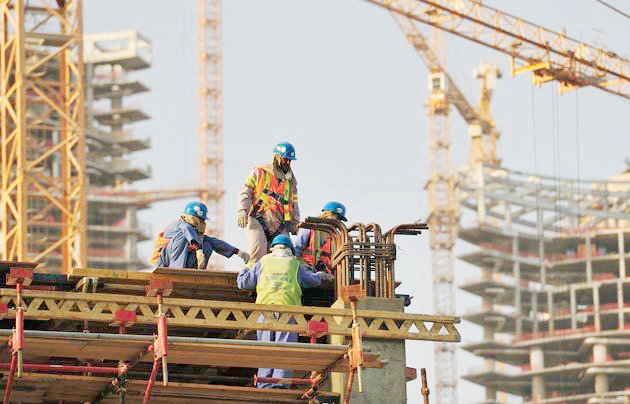

The Oman Society of Contractors (OSC), the umbrella grouping of construction firms operating in the Sultanate, has called for a drastic rethink of strategies advocating the Omanisation of the estimated 650,000 construction-related jobs — an exercise, it says, is grindingly slow and largely ineffectual.

Instead, the influential association is urging the government, as well as contractors, to introduce new technologies and innovation that will eliminate the need for the large numbers of blue-collar workers currently required to undertake building and infrastructure projects in the conventional ‘brick and mortar’ style of construction.
According to Fawzi al Harrassy (pictured), Vice Chairman — Oman Society of Contractors, Omanisation of the expat dominated construction workforce has proved a “challenge” for several years. Of the estimated 650,000 workers in this key sector — which was roughly 800,000-strong before the latest economic downturn — only about 56,000 are nationals (equivalent to about 8 per cent), he said.
“(This trend) has never changed for the last 10 years,” said Al Harrassy. “So it continues to be a great challenge for us. The government wants us to hire a lot of Omanis in the positions of engineers, but we don’t have enough of them,” he lamented.
Speaking at a construction forum held in the city recently, the veteran contractor called for the use of modern technology to address this challenge.
“With the Association becoming more active and membership better enforced, as Vice Chairman I personally believe that with technology and few other changes we will not only be able to employ more Omanis in this sector, but also accelerate the completion of construction projects.”
Given the harsh climatic conditions of the Middle East, countries of this region, including Oman, must look beyond present conventional methods for their building and construction requirements, according to the Vice President. “We are not a large population,” said Al Harrassy. “The issue of us focusing on conventional methods of construction is not the way to go — especially in this oil producing region. We are advocating the use of technology in construction, which will have a positive effect on employment of Omanis in the white-collar segment of this industry.”
Present-day construction methods require literally thousands of unskilled helpers working alongside masons at building sites, he claimed. “If you go to any construction site or government project, I guarantee you that 50 per cent of the workforce is made up of helpers, who are not really skilled people. If you take these people out, you will have a lot less people. But with technologies that support Lego-type construction, you will need people to be skilled, while the construction will be completed faster. For countries in this region, there is no reason for contractors to, for example, have boundary walls built by workers brick by brick. This is a thing of the past.”
Furthermore, the import of large numbers of unskilled blue-collar workers puts a strain on local resources with limited upside benefit, Al Harrassy warned. “When you have expat labourers, they also consume electricity, water, healthcare and other needs as well. Those needs are subsidized by the government. But with technology, if you can reduce the need for, say, 250,000 of these people, you will create white-collar jobs in the process. (Even if one white collar job is created for every 10 blue-collar ones, the outcome is worth it). Consumption of energy, utilities and other resources will be reduced as well.”
In this regard, he called for the adoption of new efficiency-enhancing technologies in the implementation of government projects, in particular. “Advanced economies are producing precast concrete and completing buildings in no time. Government projects should adopt these technologies. Period! This approach will also reduce emissions, cut power consumption, and build human capacities in Oman.”
Oman Observer is now on the WhatsApp channel. Click here



